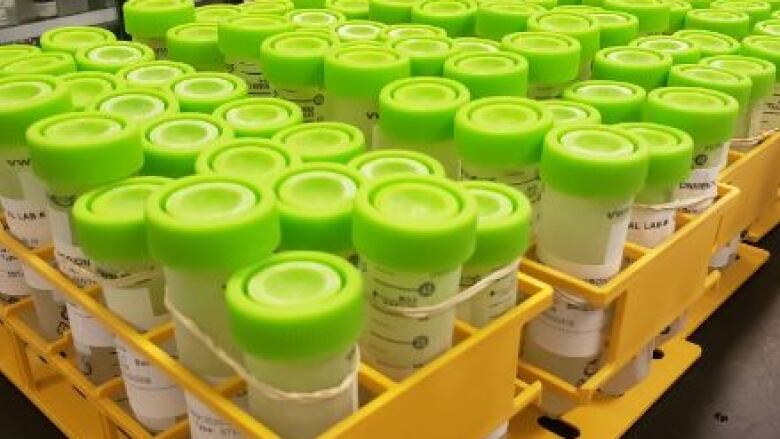Wastewater a 'tremendous resource' for public health, researcher says
Thunder Bay just one of Ontario's municipalities sending wastewater samples for COVID-19 testing

An Ontario scientist involved in a research project that sees municipal wastewater tested for COVID-19 hopes the process will become a standard public health measure going forward.
About a dozen labs in Ontario are taking part in the project, which sees municipalities including Thunder Bayfrom across the province submit wastewater for analysis. Eventually, it could lead to an early-detection system, one that predicts spikes in positive COVID-19 cases based on what's found in the wastewater.
"It's incredible how much information is contained within the wastewater," said Mike McKay, executive director of the Great Lakes Institute for Environmental Research at the University of Windsor, one of the labs taking part in the project. "Really, anything that goes through our bodies, there's the possibility it could be detected in the wastewater stream."
In the case of COVID-19, McKay said people who catch it start shedding the virus through fecal matter days before they showany symptoms.
"And then, there area number of people who are asymptomatic, and never really show signs of illness and don't seek testing," he said. "Yet they're still shedding the virus, as well."
The analysis can detect both symptomatic and asymptomatic cases in a community, McKay said.
"Ideally, we can look at our data and we can we can sort of line up the data against the reported clinical cases, and do some handwaving and suggest thatour data are actually showing this in advance," he said. "But without the method being completely vetted, it is difficult to be 100 percent sure if it is providing early detection."
Funding is in place to continue the funding for the research portion of the project which will include vetting the results to ensure the analysis is, in fact, providing early detection although the province has committed to funding it for two years in its budget.
McKay's lab which is where Thunder Bay is sending its wastewater samplesgot involved last March.
"We were actually contacted at the University of Windsor by a commercial medical laboratory about the use of one of our instruments ...for potential diagnostic testing for [COVID-19]," he said. "That didn't didn't come through, they ended up doingsomething else."
"Itdawned upon us that we have the infrastructure to be testing for COVID."
The lab had already been testing wastewater for Windsor, mainly testing the "quality of effluent being discharged back into the receiving waters of the Great Lakes," he said.
And he'd just heard about a project in the Netherlands that was testing for COVID-19 in wastewater.
By May of 2020, testing of wastewater from the Windsor-Essex region for the virus had begun, and the project is now being coordinated by the Ministry of Environment, Conservation and Parks.
Testing for variants
"My understanding is that we have about 70 per cent of the population of Ontario covered through this program right now," McKay said.
And recently, the project has begun testing for the COVID-19 variant first detected in the United Kingdom, thanks to a process developed at the University of Ottawa, he said.
McKay said wastewater testing could have value for public health in the future, even beyond the COVID-19 pandemic.
"We are looking at this as an approach to be adopted by public health in the future for not just [COVID-19], but other diseases," he said. "The wastewater stream is a real tremendous resource."
There's "a lot of knowledge in wastewater that's reflective of the public health of the community," McKay said. "There's no reason to believe we can't use this same approach to inform public health of other diseases."
A similar approach, for example, has been used to track the transmission of polio, and in Canada, the process was recently used to study illicit drug use.
"In 2018, StatsCanada conducted a pilot program with five cities across the country looking for illicit drugs, basically, which they could use to augmenttheir understanding of drug use in communities and maybe better prepare those communities," or provide assistance to those communities, McKay said.
However, if this project were to continue, more investment from the government would be required, he said.
"We certainly have university labs that have been supportive thus far, and have allowed us to gear up and ramp up for testing," McKay said. "But if we continue this for the longer term, it's just going to requirea more-sustainable approach rather than sort of a one-time shot of funding for some infrastructure and personnel."












_(720p).jpg)


 OFFICIAL HD MUSIC VIDEO.jpg)
.jpg)



























































































